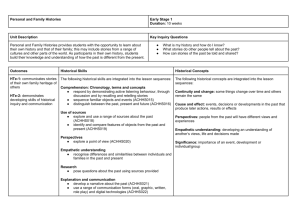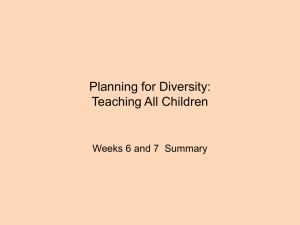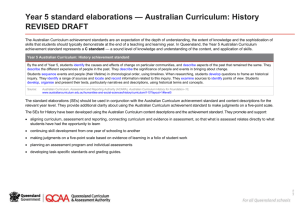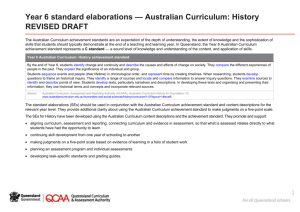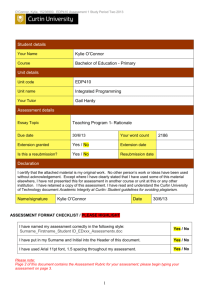Curriculum and Programming Policy
advertisement
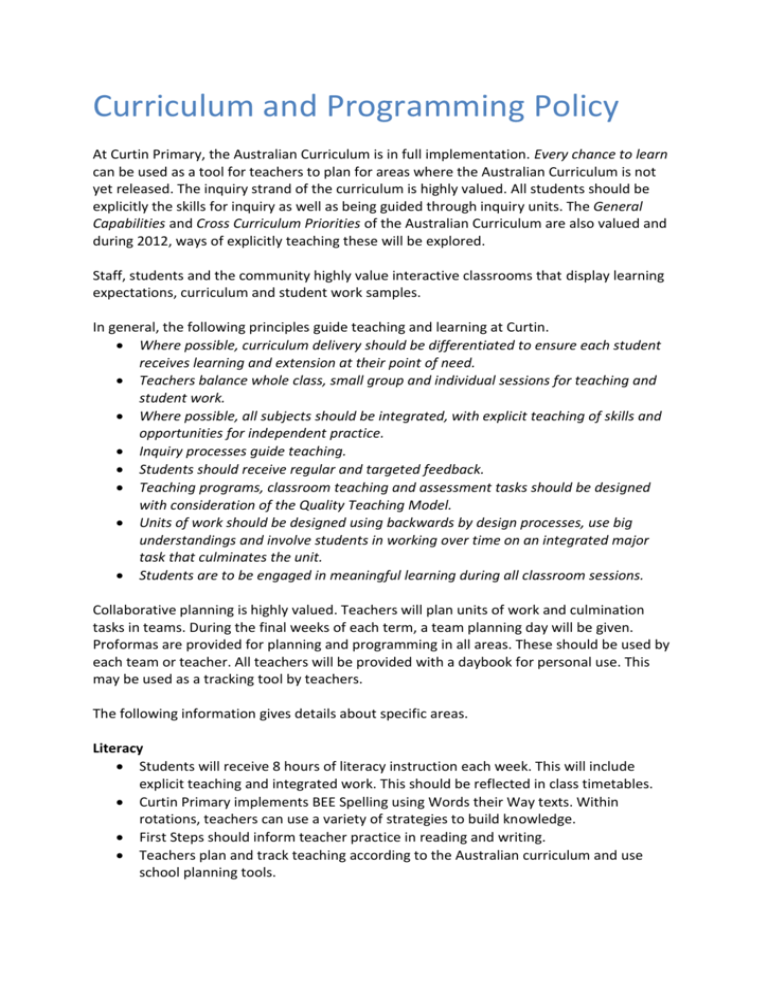
Curriculum and Programming Policy At Curtin Primary, the Australian Curriculum is in full implementation. Every chance to learn can be used as a tool for teachers to plan for areas where the Australian Curriculum is not yet released. The inquiry strand of the curriculum is highly valued. All students should be explicitly the skills for inquiry as well as being guided through inquiry units. The General Capabilities and Cross Curriculum Priorities of the Australian Curriculum are also valued and during 2012, ways of explicitly teaching these will be explored. Staff, students and the community highly value interactive classrooms that display learning expectations, curriculum and student work samples. In general, the following principles guide teaching and learning at Curtin. Where possible, curriculum delivery should be differentiated to ensure each student receives learning and extension at their point of need. Teachers balance whole class, small group and individual sessions for teaching and student work. Where possible, all subjects should be integrated, with explicit teaching of skills and opportunities for independent practice. Inquiry processes guide teaching. Students should receive regular and targeted feedback. Teaching programs, classroom teaching and assessment tasks should be designed with consideration of the Quality Teaching Model. Units of work should be designed using backwards by design processes, use big understandings and involve students in working over time on an integrated major task that culminates the unit. Students are to be engaged in meaningful learning during all classroom sessions. Collaborative planning is highly valued. Teachers will plan units of work and culmination tasks in teams. During the final weeks of each term, a team planning day will be given. Proformas are provided for planning and programming in all areas. These should be used by each team or teacher. All teachers will be provided with a daybook for personal use. This may be used as a tracking tool by teachers. The following information gives details about specific areas. Literacy Students will receive 8 hours of literacy instruction each week. This will include explicit teaching and integrated work. This should be reflected in class timetables. Curtin Primary implements BEE Spelling using Words their Way texts. Within rotations, teachers can use a variety of strategies to build knowledge. First Steps should inform teacher practice in reading and writing. Teachers plan and track teaching according to the Australian curriculum and use school planning tools. Numeracy Students will receive 5 hours of numeracy teaching each week. This should be reflected in class timetables. Stepping Stones, Count me in Too and Middle Years Mental Computation guide teaching in number. Teachers plan and track teaching according to the Australian curriculum and use school planning tools. Integrated Inquiry Units Teachers plan and track teaching according to the Australian curriculum from the school inquiry scope and sequence which is transferred into units of work. All classrooms or teaching areas should display the inquiry question, understandings and the school inquiry organisers. The inquiry understandings should be referred to at the culmination of each lesson. Three units of work will be implemented in each year, according to the curriculum calendar. These should be sequenced by teaching teams to ensure all KLAs are covered in both semesters. Social Skills Each week, teachers will facilitate one lesson from the Friendly Schools Plus scope and sequence. This may be delivered as a circle time or from the lesson plan. Each week, classes should have a meeting to discuss any issues linked to the SRC, social problems or upcoming events. This could be a circle time session. Posters showing the Time out process, Restorative Questions and 6Cs should be displayed in each room and referred to regularly. Throughout the year, teachers should ensure students understand restorative practices and have opportunities to talk about any concerns.




